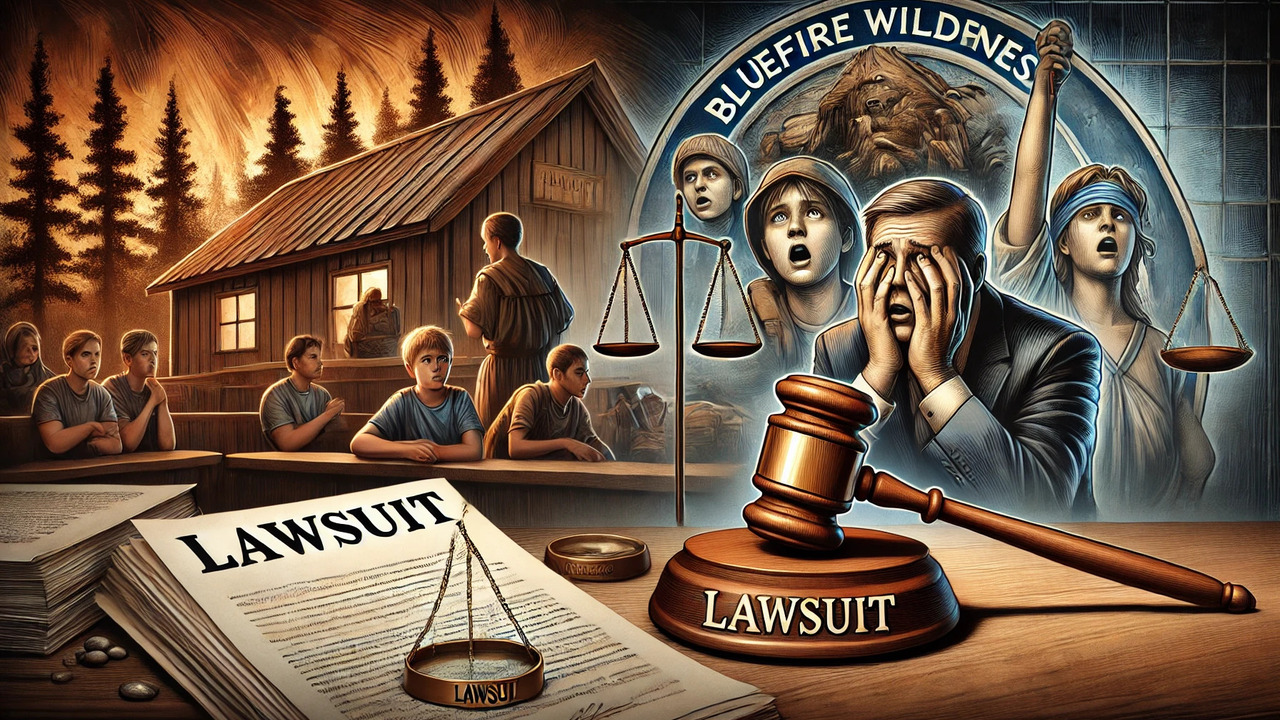The BlueFire Wilderness lawsuit has garnered significant attention due to the serious allegations of misconduct and abuse within the program. Designed to help troubled adolescents through therapeutic outdoor experiences, BlueFire Wilderness has been accused of various forms of negligence and maltreatment. This article delves into the details of the lawsuit, its broader implications for the wilderness therapy industry, and the potential outcomes.
Overview of the BlueFire Wilderness Program
BlueFire Wilderness is a therapy program that blends outdoor adventures with psychological counseling, aiming to foster personal growth and emotional healing in adolescents. The program is designed to help participants overcome personal challenges by immersing them in a natural setting. However, the recent lawsuit has raised critical questions about the program’s safety measures and effectiveness.
Key Allegations in the Lawsuit
The lawsuit against BlueFire Wilderness includes several serious allegations, which have sparked intense scrutiny and debate.
Abuse and Neglect
One of the primary allegations involves instances of physical, emotional, and psychological abuse by staff members. Plaintiffs claim that participants were subjected to excessive force, verbal abuse, and emotional manipulation. Additionally, there are allegations of neglect, where the basic needs of participants, such as food, water, and medical care, were reportedly ignored.
Unqualified Staff
Concerns have been raised about the qualifications and training of the staff members at BlueFire Wilderness. Critics argue that insufficiently trained staff lack the necessary skills and knowledge to support the adolescents, potentially leading to harmful situations effectively.
Safety Violations
The lawsuit also highlights safety violations, accusing the program of failing to provide adequate supervision and proper safety protocols. This negligence allegedly exposed participants to unnecessary risks and danger.
BlueFire Wilderness’ Response
In response to the lawsuit, BlueFire Wilderness has issued statements denying the allegations and asserting their commitment to participant safety. The program has initiated an internal investigation to examine the claims thoroughly and has suspended the staff members named in the lawsuit pending further investigation.
Broader Implications for the Wilderness Therapy Industry
The BlueFire Wilderness lawsuit has far-reaching implications beyond the organization, affecting the entire wilderness therapy industry. It has ignited a broader conversation about industry standards, regulatory oversight, and the ethics of wilderness therapy programs.
Need for Increased Regulation
The wilderness therapy industry’s lack of consistent regulations and oversight has been scrutinized. The lawsuit has prompted calls for comprehensive reform, including establishing national licensing requirements, mandatory staff qualifications, and independent program evaluations.
Industry-Wide Reforms
Experts anticipate that the outcome of the BlueFire Wilderness lawsuit will lead to significant industry-wide reforms. These could include enhanced staff training, stricter safety protocols, and improved transparency with participants and their families. Such changes aim to ensure adolescents’ safety and well-being in wilderness therapy programsand bring hope for a better future for the industry.
Potential Outcomes of the Lawsuit
The outcome of the BlueFire Wilderness lawsuit remains uncertain, but it could have substantial consequences for the program and the wilderness therapy industry.
Financial Settlements
BlueFire Wilderness could face significant financial settlements to compensate for the alleged harm if the plaintiffs prevail. These costs and legal fees could impact the program’s overall budget and operations.
Program Changes
The lawsuit might prompt BlueFire Wilderness to implement significant changes to address the alleged shortcomings. This could include increased staff training, revisions to the program structure, and stricter screening processes for staff and participants.
Reputational Damage
The negative publicity surrounding the lawsuit has already impacted BlueFire’s reputation. Continued coverage and scrutiny could lead to a decline in program enrollment and trust issues among potential clients and their families.
The Role of Public Perception
Public perception plays a critical role in the viability and success of wilderness therapy programs. The BlueFire Wilderness lawsuit has heightened scrutiny of wilderness programs, potentially impacting enrollment and families’ openness to such therapy. It’s a reminder of the power of public opinion and its influence on shaping the future of such programs. Despite the controversy, advocates for wilderness therapy emphasize the unique approach and the positive impact it can have on individuals struggling with severe emotional and behavioral issues.
Conclusion
The BlueFire Wilderness lawsuit highlights the critical need for oversight and accountability in adolescent therapeutic programs. As the legal proceedings continue, the focus remains on ensuring the safety and well-being of participants and pushing for necessary reforms in the wilderness therapy sector. While the allegations against BlueFire Wilderness are serious and demand a thorough investigation, it is essential to recognize the potential benefits of wilderness therapy when conducted ethically and responsibly. Reiterating the commitment to ethical practices, transparency, and a focus on participant well-being can reassure the audience about the future of such programs, ensuring that they can continue to provide valuable support for struggling adolescents.
FAQs on the BlueFire Wilderness Lawsuit
What is the BlueFire Wilderness Lawsuit About?
The lawsuit involves accusations of neglect, abuse, and negligence within the BlueFire Wilderness program, raising serious concerns regarding participant safety and well-being.
Are the Allegations Proven Facts?
No, these legal claims must undergo due process before being considered factual evidence. The lawsuit is currently gathering evidence, conducting depositions, and preparing for trial, which is the next step in the legal process.
What Are the Potential Outcomes of the Lawsuit?
Potential outcomes include:
Financial compensation for the plaintiffs.
Implementation of stricter operational and safety guidelines for BlueFire Wilderness.
Legal precedents could affect the wilderness therapy industry.
How Might the Lawsuit Impact Future Regulatory Measures in the Industry?
The lawsuit could prompt the introduction of stricter safety standards, more rigorous staff training requirements, and enhanced monitoring and evaluation of wilderness therapy programs.
How Has the Community Responded to the Lawsuit?
Public reaction has been mixed. Some have defended the program based on positive past experiences, while others express concern over the allegations. Stakeholders, including parents and industry professionals, are closely monitoring the situation. Some parents have expressed their continued support for the program, citing its positive impact on their children. In contrast, others have voiced their concerns and await the lawsuit’s outcome before making any judgments.
What Steps Can Parents Take to Ensure the Safety of Their Children in Wilderness Therapy Programs?
Parents should conduct thorough research and ask about staff qualifications, safety protocols, participant-to-staff ratios, and the program’s track record. Speaking with former participants and their families can also provide valuable insights.
Also Read: Understanding the Artists Directory ArcyArt: A Comprehensive Guide







